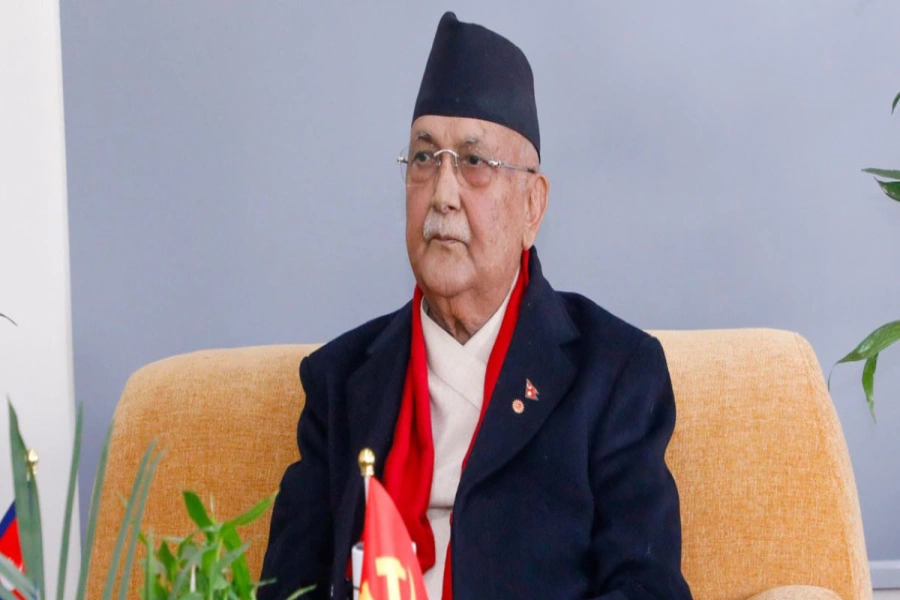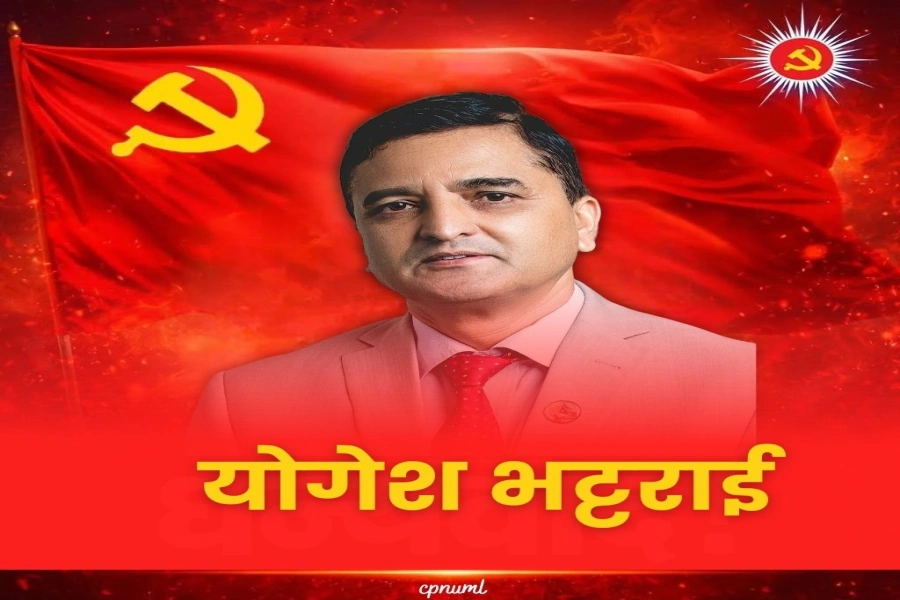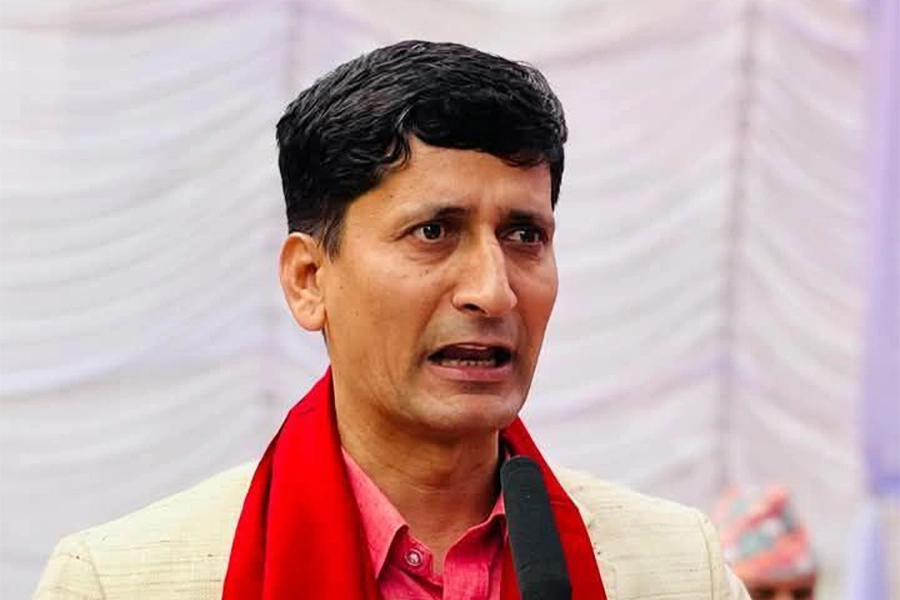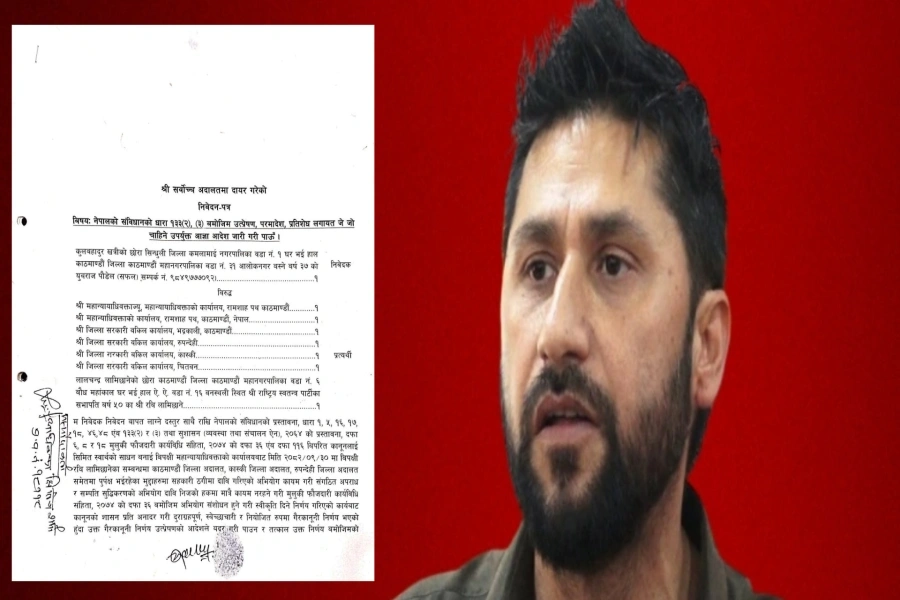Of all the calls Deepak Silwal usually receives many are matters of life and death. In the last six years that he has been helping people, Silwal has chosen not to publicize his deeds but, of late, people have become aware of this fact.
A little more than a month ago, a national radio station discovered that he had chartered a helicopter with his own resources to bring a pregnant woman to Kathmandu for emergency treatment. Unlike many of us who tend to resign to fate and believe that we can’t help everybody in need, Silwal puts in that extra effort to reach out. As this particular case was discussed on the popular morning show, it caught the attention of many.
Silwal shares that the pregnant women in question was experiencing complications but lived in a remote village in Sindhupalchowk. Even though the need for medical assistance was apparent, she didn’t have access to any. However, as it turned out, over the years Silwal had helped a couple of other people from her village so they set off to contact him.
“When I received the call, I was told that she would die if we didn’t find a way to get her to the capital,” says Silwal, “And the only way to do that within the required timeframe was to use a helicopter. So, that’s what I did.” The woman survived and, after several days in the ICU, so did her baby.
Where quality meets affordability

But it wasn’t only about providing medical aid, Silwal also made sure that she and her family wouldn’t have to bear the financial costs of her treatments. As he puts it, for the people he helps the prospect of expenses are the biggest burden so he always offers to take care of them from his own pocket. This has been his story for the last six years.
Initially, Silwal wanted be an entrepreneur. Back then, he was also intent on going to Australia but all of his plans fell through when his father passed away because of cancer. Silwal still remembers the very first person he had helped after going through this personal loss.
He had come to know of her after reading about her in the newspapers. She was a child and also a cancer patient. He had offered to support her financially but, unfortunately, the treatment wasn’t enough. She too eventually passed away.
Silwal, on the other hand, didn’t stop. He says he began using his own money and inheritance to support those in need of urgent medical assistance. He is particularly sensitive towards cases of pregnant women and children.
He elaborates, “There were and still are days when I don’t get such calls. But then, there are days where I have too many. I choose to prioritize the critical cases where it really is a matter of life and death. As I continued to help people, it seemed that word had spread among the villages.” Apparently, he mostly gets rescue requests from Sidhupalchowk and Dolakha.
But naturally, with time, Silwal has run out of resources. Currently, he has been using his network of friends and acquaintances to gather necessary funds. He doesn’t hesitate to confess that, over the years, all of his own money has been spent. Now it’s a matter of being able to appeal to people’s empathy and convince them that their contributions will yield results. When required, Silwal even resorts to taking loans.
He also adds that his family doesn’t understand his decision. He may be unmarried but his siblings and maternal side of the family continue to question his decision to continue with the charity work. But as far as Silwal is concerned, this will be his future as well.
He explains, “I’m currently living with an aunt of mine. She has been running an orphanage for more than two decades now and she did it out of her own pocket. I live with her because she understands my motives. Indeed, this is a challenge but it’s also what I want to dedicate my life to.”
Silwal has already registered an organization, Ghar Aagan Nepal, for the very purpose. He has been trying to carry out his deeds more systematically so that, first of all, he can start gathering funds without having to rely on his personal network and also so that he can justify his impulse to help people in ways he hopes others will understand. However, he expects running an organization to be another challenge.
If he could have it his way, Silwal says, he would quietly go about helping those in need, on his own. Along the way, he has managed to earn the trust of some professionals with his charity work. “Dr Bhola Rizal, for example, gives free treatment to those that I assist,” he says, “I would just like to quietly collaborate with people like him and continue with the rescues. Setting up offices and blowing my own trumpet don’t exactly appeal to me.”
Still, since that’s proving to be quite inevitable, Silwal shares that he finds solace in his aunt’s words. “As she has a lot of experience regarding charity work with her orphanage, she has already warned me that it isn’t going to be easy but she also guarantees that it will definitely be worth it,” he concludes.





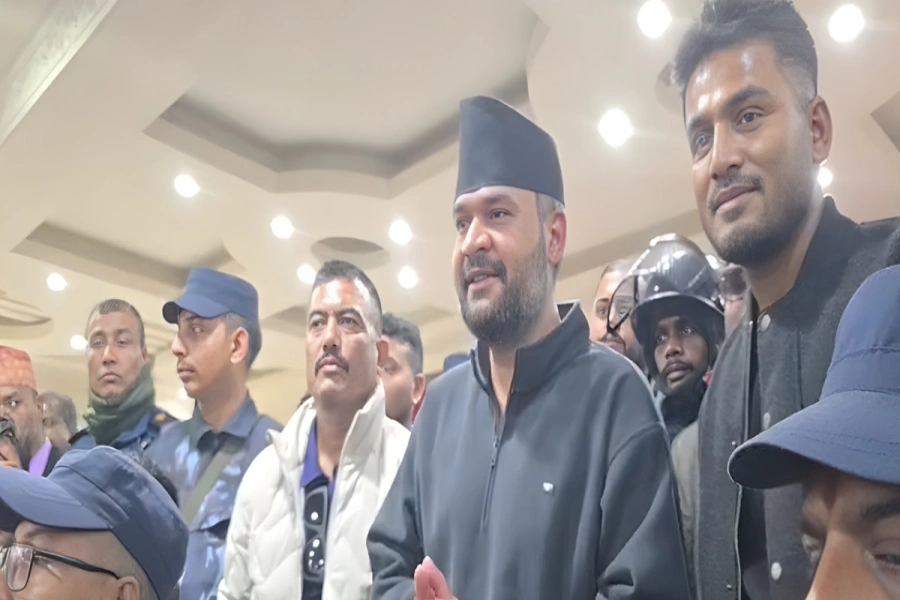

-1768720371.webp)
